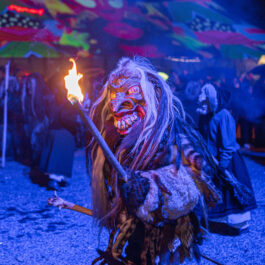Lifestyle First Impressions
The Greatest Opening Lines In Literature
introWhether powerful, original or just plain funny, the opening lines of these literary classics hook readers in from the very first words…
0/50
Lifestyle First Impressions
The Greatest Opening Lines In Literature.
1984Nineteen Eighty-Four, George Orwell – 1949: “It was a bright cold day in April, and the clocks were striking thirteen.” This book has influenced our language and thinking ever since it was first published, and its first line perfectly sets up the stream of lies and deceits so loved by authoritarian regimes.
1/50
Lifestyle First Impressions
The Greatest Opening Lines In Literature.
Anna KareninaAnna Karenina, Leo Tolstoy – 1878: “All happy families resemble one another; but each unhappy family is unhappy in its own way.” A novel with eight parts, more than 800 pages and numerous characters, the start perfectly encapsulates this tangled story interweaving love and tragedy, family and society, set amidst a period of change in mid-19th-century Russia.
2/50
Lifestyle First Impressions
The Greatest Opening Lines In Literature.
A Tale Of Two CitiesA Tale of Two Cities, Charles Dickens – 1859: “It was the best of times, it was the worst of times, it was the age of wisdom, it was the age of foolishness, it was the epoch of belief, it was the epoch of incredulity, it was the season of Light, it was the season of Darkness, it was the spring of hope, it was the winter of despair.” This historical novel is all of these things – and starting with this unforgettable beginning, it’s also a Dickens masterpiece.
3/50
Lifestyle First Impressions
The Greatest Opening Lines In Literature.
Moby DickMoby Dick, Herman Melville – 1851: “Call me Ishmael.” For such a famously long and dense book, Melville could hardly have penned a shorter (or more memorable) opening line.
4/50
Lifestyle First Impressions
The Greatest Opening Lines In Literature.
Coming Up For AirComing Up For Air, George Orwell – 1939: “The idea really came to me the day I got my new false teeth.” As George Bowling finds out with his idea of visiting his childhood home, nostalgia and looking backwards doesn’t really help, especially when it’s a tool to avoid facing future challenges.
5/50
Lifestyle First Impressions
The Greatest Opening Lines In Literature.
Pride and PrejudicePride and Prejudice, Jane Austen – 1813: “It is a truth universally acknowledged, that a single man in possession of a good fortune, must be in want of a wife.” A splendidly candid opener that begins a classic romance novel.
6/50
Lifestyle First Impressions
The Greatest Opening Lines In Literature.
AladdinAladdin and the Wonderful Lamp, Unknown Author – c. French translation from Arabic 1704-1717: “There once lived a poor tailor, who had a son called Aladdin, a careless, idle boy who would do nothing but play all day long in the streets with little idle boys like himself.” A comparatively modern addition to the book, the story of Aladdin is just one of many in the magical collection of Middle Eastern and Indian stories in The Thousand and One Nights.
7/50
Lifestyle First Impressions
The Greatest Opening Lines In Literature.
FahrenheitFahrenheit 451, Ray Bradbury – 1953: “It was a pleasure to burn.” The burning of books is etched in history as a method of thought control, brilliantly evoked in Bradbury’s dystopian novel, in which books are banned.
8/50
Lifestyle First Impressions
The Greatest Opening Lines In Literature.
David CopperfieldDavid Copperfield, Charles Dickens – 1849-1850:“Whether I shall turn out to be the hero of my own life, or whether that station will be held by anybody else, these pages must show.” One of Dickens’ best, readers follow Copperfield’s life – and by the end, it’s down to them to decide what kind of a man the protagonist really is.
9/50
Lifestyle First Impressions
The Greatest Opening Lines In Literature.
Slaughterhouse 5Slaughterhouse-Five, Kurt Vonnegut – 1969: “All this happened, more or less.” Seen as one of the great anti-war books, it focuses on the Allied bombing of Dresden in 1944, which Vonnegut, in the US military, survived as a prisoner of war.
10/50
Lifestyle First Impressions
The Greatest Opening Lines In Literature.
The TrialThe Trial, Franz Kafka – 1915: “Someone must have slandered Josef K., for one morning, without having done anything truly wrong, he was arrested.” And so begins Josef K’s nightmare of trying to discover why and by whom he has been imprisoned.
11/50
Lifestyle First Impressions
The Greatest Opening Lines In Literature.
TrainspottingTrainspotting, Irving Welsh – 1993: “The sweat wis lashing oafay Sick Boy; he was trembling.” Dialect, drugs and some inspired nicknames – all packed into the opening line – characterise this searing debut novel by Welsh.
12/50
Lifestyle First Impressions
The Greatest Opening Lines In Literature.
The Go-BetweenThe Go-Between, L.P. Hartley – 1953: “The past is a foreign country; they do things differently there.” As succinct as it is profound, revolving around history and memory, it’s an inspired opener.
13/50
Lifestyle First Impressions
The Greatest Opening Lines In Literature.
A Clockwork OrangeA Clockwork Orange, Anthony Burgess – 1962: “What’s it going to be then, eh?” A simple sentence has rarely been uttered with such menace, as readers discover.
14/50
Lifestyle First Impressions
The Greatest Opening Lines In Literature.
Swann's WaySwann’s Way, Marcel Proust – 1913: “For a long time, I went to bed early.” Starting with these sleeping difficulties, this first in Proust’s heptalogy examines memory, time and love, using French aristocratic and bourgeois life as his muse.
15/50
Lifestyle First Impressions
The Greatest Opening Lines In Literature.
Old Man And The SeaThe Old Man and the Sea, Ernest Hemingway – 1952: “He was an old man who fished alone in a skiff in the Gulf Stream and he had gone eighty-four days now without taking a fish.” This wonderful short novel gets the vivid opening it deserves in one of Hemingway’s last works of fiction, which depicts an old man facing his ultimate test.
16/50
Lifestyle First Impressions
The Greatest Opening Lines In Literature.
The End of the AffairThe End of the Affair, Graham Greene – 1951: “A story has no beginning or end; arbitrarily one chooses that moment of experience from which to look back or from which to look ahead.” Using flashbacks and other devices to tell a story, with Catholicism a key theme, Greene’s novel is about a writer’s perspective on love and jealousy in a short-lived affair.
17/50
Lifestyle First Impressions
The Greatest Opening Lines In Literature.
The Adventures of Tom SawyerThe Adventures of Huckleberry Finn, Mark Twain – 1885: “You don’t know about me without you have read a book by the name of ‘The Adventures of Tom Sawyer’; but that ain’t no matter.” Setting out in the first line of this American classic that there is a prequel, readers go through a mass of adventures on the Mississippi, along with the orphan Huckleberry Finn and runaway slave Jim.
18/50
Lifestyle First Impressions
The Greatest Opening Lines In Literature.
Peter PanPeter Pan, JM Barrie – 1911: “All children, except one, grow up.” True to his word, Barrie’s Pan never did grow up.
19/50
Lifestyle First Impressions
The Greatest Opening Lines In Literature.
The Catcher in the RyeThe Catcher in the Rye, J. D. Salinger – 1951: “If you really want to hear about it, the first thing you’ll probably want to know is where I was born, and what my lousy childhood was like, and how my parents were occupied and all before they had me, and all that David Copperfield kind of crap, but I don’t feel like going into it, if you want to know the truth.” Set in the 1950s, it continues to be a classic story of teenage angst, identity and rebellion.
20/50
Lifestyle First Impressions
The Greatest Opening Lines In Literature.
The Crow RoadThe Crow Road, Iain Banks – 1992: “It was the day my grandmother exploded.” A start like this is surely inducement enough to read on.
21/50
Lifestyle First Impressions
The Greatest Opening Lines In Literature.
The Life and Opinions of Tristram ShandyThe Life and Opinions of Tristram Shandy, Laurence Sterne – 1759-1767: “I wish either my father or my mother, or indeed both of them, as they were in duty both equally bound to it, had minded what they were about when they begot me; had they duly considered how much depended upon what they were then doing; that not only the production of a rational Being was concerned in it, but that possibly the happy formation and temperature of his body, perhaps his genius and the very cast of his mind; and, for aught they knew to the contrary, even the fortunes of his whole house might take their turn from the humours and dispositions which were then uppermost: Had they duly weighed and considered all this, and proceeded accordingly, I am verily persuaded I should have made a quite different figure in the world, from that, in which the reader is likely to see me.” This elaborate, lengthy introduction is a sign of what’s to come in Sterne’s humorous multi-volume semi-autobiography.
22/50
Lifestyle First Impressions
The Greatest Opening Lines In Literature.
UlyssesUlysses, James Joyce – 1922: “Stately, plump Buck Mulligan came from the stairhead, bearing a bowl of lather on which a mirror and a razor lay crossed.” This opening parody of a Catholic mass sets the tone of Joyce’s Dublin-placed masterpiece of Modernist fiction.
23/50
Lifestyle First Impressions
The Greatest Opening Lines In Literature.
Good Soldier ŠvejkGood Soldier Švejk, Jaroslav Hašek – 1921-1923: “And so they killed our Ferdinand.” Beginning with a deadpan reference to the start of the First World War, this story by the bohemian and anarchist Hašek was not only inspired by his experiences in the conflict, it is also hilarious.
24/50
Lifestyle First Impressions
The Greatest Opening Lines In Literature.
City Of GlassCity of Glass, Paul Auster – 1985: “It was a wrong number that started it, the telephone ringing three times in the dead of night, and the voice on the other end asking for someone he was not.” Private eye Daniel Quinn needs to unlock a mystery that starts with a phone call, in the first book of Auster’s acclaimed New York Trilogy.
25/50
Lifestyle First Impressions
The Greatest Opening Lines In Literature.
The Sound and the FuryThe Sound and the Fury, William Faulkner – 1929: “Through the fence, between the curling flower spaces, I could see them hitting.” A story across decades, dissecting the travails of a Mississippi family, the first part of the book is narrated by the cognitively disabled Benjy.
26/50
Lifestyle First Impressions
The Greatest Opening Lines In Literature.
Don QuixoteDon Quixote, Miguel de Cervantes – 1605-1615: “Somewhere in la Mancha, in a place whose name I do not care to remember, a gentleman lived not long ago, one of those who has a lance and ancient shield on a shelf and keeps a skinny nag and a greyhound for racing.” Soldier, poet, writer, Cervantes introduces the main protagonist in his literary masterpiece, an ageing nobleman seeking to bring back knightly, chivalric values.
27/50
Lifestyle First Impressions
The Greatest Opening Lines In Literature.
Wolf HallWolf Hall, Hilary Mantel – 2009: ”So now get up.” And he did get up from his father’s beating, in this mesmerising historical biography of Thomas Cromwell, eventually becoming advisor to Henry VIII, before his inevitable downfall in Mantel’s sequel.
28/50
Lifestyle First Impressions
The Greatest Opening Lines In Literature.
The OutsiderThe Outsider, Albert Camus – 1942: “Mother died today.” Meursault shocks people when he shows no sadness at his mother’s death, but then he always has been something of an outsider, a nonconformist, then a murderer.
29/50
Lifestyle First Impressions
The Greatest Opening Lines In Literature.
Notes From UndergroundNotes from Underground, Fyodor Dostoyevsky – 1864: “I am a sick man . . . I am a spiteful man.” Another classic outsider in literature, the excerpt from an unnamed voice in St Petersburg bitterly narrates a profound unhappiness with aspects of modern society.
30/50
Lifestyle First Impressions
The Greatest Opening Lines In Literature.
ScaramoucheScaramouche, Raphael Sabatini – 1921: “He was born with a gift of laughter and a sense that the world was mad.” Against the backdrop of the French Revolution, this swashbuckling romp’s tremendous opening sentence was later inscribed on Sabatini’s gravestone on his death in 1950 in Switzerland.
31/50
Lifestyle First Impressions
The Greatest Opening Lines In Literature.
The Great GatsbyThe Great Gatsby, F Scott Fitzgerald – 1925: “In my younger and more vulnerable years my father gave me some advice that I’ve been turning over in my mind ever since.” The advice related to his son’s privileged upbringing, an upbringing that enabled the mysterious Jay Gatsby to host lavish parties and live a life of decadence and excess, creating images that continue to influence depictions of 1920s America.
32/50
Lifestyle First Impressions
The Greatest Opening Lines In Literature.
Grapes Of WrathGrapes of Wrath, John Steinbeck – 1939: “To the red country and part of the gray country of Oklahoma, the last rains came gently, and they did not cut the scarred earth.” This great Depression-era novel famously starts in Oklahoma with a poor farming family forced to migrate to find a better life.
33/50
Lifestyle First Impressions
The Greatest Opening Lines In Literature.
MiddlemarchMiddlemarch, George Eliot – 1872: “Miss Brooke had that kind of beauty which seems to be thrown into relief by poor dress.” She may be wealthy, but from this very first sentence, readers know that Dorothea Brooke rejects ostentation.
34/50
Lifestyle First Impressions
The Greatest Opening Lines In Literature.
Catch 22Catch-22, Joseph Heller – 1961: “It was love at first sight.” And in this satirical, touching novel, love doesn’t go very far in war.
35/50
Lifestyle First Impressions
The Greatest Opening Lines In Literature.
The Razor's EdgeThe Razor’s Edge, W. Somerset Maugham – 1944: “I have never begun a novel with more misgiving.” Another war novel, but while the narrator might have had his doubts, Maugham wrote a convincing account.
36/50
Lifestyle First Impressions
The Greatest Opening Lines In Literature.
The Color PurpleThe Color Purple, Alice Walker – 1982: “You better not never tell nobody but God.” Abused by her father, Celie lives in the segregated, poverty-stricken American South in the early 1900s, and writes letters to god in a harrowing story.
37/50
Lifestyle First Impressions
The Greatest Opening Lines In Literature.
The Bell JarThe Bell Jar, Sylvia Plath – 1963: “It was a queer, sultry summer, the summer they electrocuted the Rosenbergs, and I didn’t know what I was doing in New York.” In the city for an internment, the book charts Esther Greenwoods’ mental breakdown in a semi-self-biographical depiction.
38/50
Lifestyle First Impressions
The Greatest Opening Lines In Literature.
The Tin DrumThe Tin Drum, Günter Grass – 1959: “Granted: I am an inmate of a mental hospital; my keeper is watching me, he never lets me out of his sight; there’s a peephole in the door, and my keeper’s eye is the shade of brown that can never see through a blue-eyed type like me.” Part of Grass’s Danzig Trilogy, the narrator writes the story of his family as a tool to explore difficult pre- and post-war Poland-German relations, Nazism and contemporary 1950s politics.
39/50
Lifestyle First Impressions
The Greatest Opening Lines In Literature.
The MetamorphosisThe Metamorphosis, Franz Kafka – 1914: “One morning, as Gregor Samsa was waking up from anxious dreams, he discovered that in bed he had been changed into a monstrous verminous bug.” An allegory analysing themes such as abandonment and hopelessness, Gregor’s metamorphosis is also an exploration of traditional notions of familial responsibility, even – as so matter-of-factly laid out here – when the subject is “vermin”.
40/50
Lifestyle First Impressions
The Greatest Opening Lines In Literature.
Death In VeniceDeath in Venice, Thomas Mann – 1913: “On a spring afternoon in 19––, the year in which for months on end so grave a threat seemed to hang over the peace of Europe, Gustav Aschenbach, or von Aschenbach as he had been officially known since his fiftieth birthday, had set out from his apartment on the Prinzregentenstrasse in Munich to take a walk of some length by himself.” This introduction to the complex personality of Aschenbach begins Thomas Mann’s compelling novel about obsession and beauty in cholera-hit Venice.
41/50
Lifestyle First Impressions
The Greatest Opening Lines In Literature.
One Hundred Years Of SolitudeOne Hundred Years Of Solitude, By Gabriel García Márquez – 1915: “Many years later as he faced the firing squad, Colonel Aureliano Buendía was to remember that distant afternoon when his father took him to discover ice.” Packed with political commentary on real-life recent history, the invocation of the “firing squad” signposts the death and violence to come in this “magical-realist” classic.
42/50
Lifestyle First Impressions
The Greatest Opening Lines In Literature.
HobbitThe Hobbit, JR Tolkien – 1937: “In a hole in the ground lived a hobbit.” And so begins the introduction to Tolkien’s adventures, and the journeys of Bilbo Baggins and friends.
43/50
Lifestyle First Impressions
The Greatest Opening Lines In Literature.
The Good SoldierThe Good Soldier, Ford Madox Ford – 1915: “This is the saddest story I have ever heard.” And the reason is the collapse of the apparently fabulous life of narrator John Dowell through deceit and mistrust, leading to immense suffering, and piercing a hole in the genteel façade of Edwardian England.
44/50
Lifestyle First Impressions
The Greatest Opening Lines In Literature.
MurphyMurphy, Samuel Beckett – 1938: “The sun shone, having no alternative, on the nothing new.” Satirical, seedy and ending with a horrific death, Murphy starts with a shining sun – but one that portends the darkness to come.
45/50
Lifestyle First Impressions
The Greatest Opening Lines In Literature.
The DebutThe Debut, Anita Brookner – 1981: “Dr. Weiss, at forty, knew that her life had been ruined by literature.” Fleeing the realities of life for books sounds relatively harmless, doesn’t it?
46/50
Lifestyle First Impressions
The Greatest Opening Lines In Literature.
Mrs DallowayMrs. Dalloway, Virginia Woolf – 1925: “Mrs. Dalloway said she would buy the flowers herself.” Just one detail in one day in the life of Clarissa Dalloway in one of Wolf’s best novels, which deals with mental illness, upper-class expectations and perceptions of freedom.
47/50
Lifestyle First Impressions
The Greatest Opening Lines In Literature.
Robinson CrusoeRobinson Crusoe, Daniel Defoe – 1719: “I was born in the Year 1632, in the City of York, of a good Family, tho’ not of that Country, my Father being a Foreigner of Bremen, who settled first at Hull; He got a good Estate by Merchandise, and leaving off his Trade, lived afterward at York, from whence he had married my Mother, whose Relations were named Robinson, a very good Family in that Country, and from whom I was called Robinson Kreutznaer; but by the usual Corruption of Words in England, we are now called, nay we call our selves, and write our Name Crusoe, and so my Companions always call’d me.” Three centuries later and that name, Crusoe, is still a byword for being castaway on a remote island.
48/50
Lifestyle First Impressions
The Greatest Opening Lines In Literature.
Harry PotterHarry Potter and the Philosopher’s Stone, JK Rowling: “Mr and Mrs Dursley of number four, Privet Drive, were proud to say that they were perfectly normal, thank you very much.” Which, of course, is perfectly true, though the same cannot be said of a very young Harry Potter.
49/50
Lifestyle First Impressions
The Greatest Opening Lines In Literature.
Invisible ManInvisible Man, Ralph Ellison — 1952: “I am an invisible man.” Invisible not in a literal sense, as racism and identity are central to Invisible Man.
50/50


















